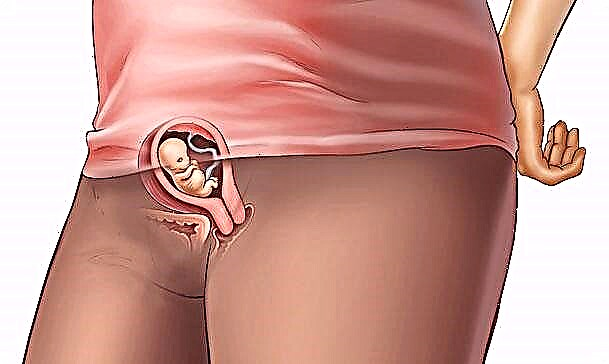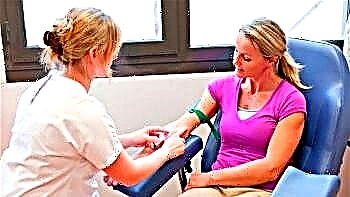It is 7 weeks of pregnancy. At this time, the expectant mother no longer asks whether she will have a child or not. Usually, everything is already clear. Now other questions are important: how is the baby developing now? What problems can arise? There are many key points.

Counting weeks
 The 7th obstetric week of pregnancy is the 5th week from conception or the 3rd from delayed menstruation. All doctors consider the term as an obstetric method. Therefore, when visiting any doctor, it is necessary to name the obstetric term. The counting starts from the first day of the last period. It is also helpful to remember:
The 7th obstetric week of pregnancy is the 5th week from conception or the 3rd from delayed menstruation. All doctors consider the term as an obstetric method. Therefore, when visiting any doctor, it is necessary to name the obstetric term. The counting starts from the first day of the last period. It is also helpful to remember:
- The 7th week from conception is the 9th obstetric.
- The 7th week from the delay is the 11th obstetric.
We read in detail about the timing of pregnancy: obstetric and embryonic - how to determine and not get confused in terms
What's happening
The future baby is developing at a tremendous pace. In the mother's body, many systems are still undergoing restructuring. It is at the 7th week that the placenta develops especially intensively. This is a real point of connection between mom and baby.

Until the full development of the placenta, the yolk sac is of great importance for the baby. This temporary endocrine gland produces the necessary hormones and also nourishes the embryo. Now the activity of the yolk sac is weakening. For example, the hormone progesterone is much weaker.

A little more, and only the placenta will be responsible for the nutrition of the fetus... Therefore, "switching" to it is very important. If the process goes wrong, the fetus may die.
Fetal development

The main event of the 7th week: now the unborn baby can really be called a fetus. The embryonic period ends... For doctors, the embryofetal period begins.
- Appearance
The facial features of the unborn baby can hardly be distinguished. The most noticeable are the eyes, they look like black seeds. Their eyelids are already forming. The rudiments of the nose, ears and upper lip are visible. A tubercle appears in the perineum - the future genitals. The whole fetus seems to straighten a little.
At the beginning of the seventh week, the gills are still visible in the embryo. Soon, these unnecessary organs will overgrow without a trace. The ponytail will disappear later.
Fruit size - about the size of white beans, 5-13 mm. Weight - about 0.8 g.

- Limbs
The fingers are lengthening, but not yet separated. A forearm and shoulder are formed on each handle. The legs develop a little more slowly and are still similar to fins.

- Brain
An active division of the brain into sections begins (for example, hemispheres are formed).
- Bones
There is no talk about the skeleton yet. But cartilage tissue develops continuously.
- Internal organs

The structure of the heart is gradually becoming more complex, it is divided into chambers. Lungs and bronchial buds, esophagus, colon and even a tiny appendix are formed. The fetal liver actively produces blood cells.
External signs of pregnancy
What does the belly look like in the 7th obstetric week of pregnancy?
So far, people around do not notice anything. But alone with herself, the expectant mother can stand in front of the mirror and take a closer look. There is already a chance to see a very slight increase in the abdomen, since the uterus has increased. Now it is about twice as large as before conception.

One day a woman will be surprised to notice that all bras are suddenly too small. On some, the clasp does not even fit. And the cups seemed to "sat down". It's okay. The breast is also preparing for the birth of the baby..
What else can you see now? Possible, but not required:
- darkening of the strip on the abdomen (it runs from the navel to the border of pubic hair growth) and nipples;
- age spots on the face and neck;
- acne, acne;
- the nose seems to be constantly stuffy, although there is neither a runny nose, let alone a cold;
- skin changes - it seems to become looser.
Feel

For many women, things are going just fine. The state of health is good, there is no toxicosis, life is wonderful. Some moms even start to worry. Is everything really all right?
Feeling unwell and feeling unwell are optional. Therefore, if the expectant mother does not have any alarming symptoms (about them just below), there is no need to worry.
Toxicosis
If toxicosis begins or is not the first day, this is also normal. Most often, it is manifested by nausea, vomiting and a change in taste preferences. All of these sensations can be very unpleasant. How to make your life easier?
- Eat breakfast in the morning before getting out of bed.
- Choose food that doesn't make you sick or vomit.
- If you're not at home, put a water bottle and some food in your purse.
- In case of sudden vomiting in a crowded area, carry a plastic bag in your purse. Wet wipes won't hurt either.
Severe toxicosis
Sometimes, nausea and vomiting can seriously harm the expectant mother. If no food is absorbed, anemia (anemia) may develop. This often leads to weakness and weight loss. Some women felt that their esophagus and throat were literally burning from constant vomiting. There was also a psychological negative. For example, women were afraid to eat until hunger literally brought them to swoon, or did not want to leave the house.
This condition requires the mandatory help of a doctor. For severe toxicosis, the doctor will select a combination treatment. The expectant mother can be hospitalized and even prescribed intravenous nutrition.
Important on the topic: in detail about toxicosis in pregnant women
Other sensations
Even without toxicosis, the expectant mother can experience a lot of everything.
- Any experience can cause euphoria, panic, or tears (both joyful and sad). All emotions seem to be multiplied by at least two.
- Endless weariness. Often, the most cherished desire is to literally fall and fall asleep.
- Dizziness, feeling of loss of balance.
- More frequent urge to urinate than before pregnancy.
- It's hard to concentrate. In the first weeks of pregnancy, women often complain: they cannot understand explanations about something new. For example, master an unfamiliar computer program.
- The sense of smell is going crazy. Many familiar smells become unpleasant. The stronger the smell, the worse it can be perceived.
- Lack of air. Almost any room feels stuffy.
- Light pulling sensation in the chest. In the early stages, they are rare and occur on the outside of the chest, closer to the armpit. Like nipple tenderness, this is normal.
- Minor pain in the lower back or lower abdomen that does not distract or interfere with daily life.
Allocations
A uniform white or clear discharge is considered normal. no unpleasant odor, not very thick and not abundant. A doctor's examination is required if the discharge is as follows:
- yellow or yellow-green;
- bloody;
- brown;
- look like cottage cheese;
- frothy;
- too abundant.
Pain, itching, or burning on the labia or near the vagina will be another cause for concern.
Bleeding during pregnancy is a threat or evidence of miscarriage.
Sometimes, even in the early stages, the expectant mother can see discharge from the nipples. The clear yellowish droplets are called colostrum. This is the future milk. If the droplets leave a mark on your clothes, you should buy disposable bra pads and change them regularly. Attention: you cannot express colostrum! This can increase fluid production or cause uterine contractions.
Early excretion of colostrum is an alarming signal if a woman already has a threat of miscarriage. It is imperative to inform your doctor about this.
Elevated temperature
In the first trimester of pregnancy, a mother can sometimes notice a rise in body temperature to 37.0-37.5 degrees. If there are no other “cold” sensations, you do not need to worry. However, a doctor will be required if:
- even a small temperature lasts for several days and does not subside;
- have a sore throat, runny nose and / or cough;
- severe weakness is felt;
- the temperature rises above 37.5 ° C.
Scheduled visits to doctors
Expectant mothers often ask the question - is it possible not to go to the gynecologist in the seventh week? Someone has no time, someone does not want to sit in lines. But even if you feel well, it is advisable to visit a doctor (if this has not been done earlier). At least in order for the doctor to recommend suitable vitamins for pregnant women and folic acid preparation (it is very important for the unborn baby).
Examinations and analyzes
 Ultrasound. It is prescribed to exclude an ectopic pregnancy. Depending on the equipment, the test may be done through the vagina. This procedure is done carefully and does not give any discomfort.
Ultrasound. It is prescribed to exclude an ectopic pregnancy. Depending on the equipment, the test may be done through the vagina. This procedure is done carefully and does not give any discomfort.- Measurement of pelvic dimensions, weight and height.
- Measurement of blood pressure.
- ECG (heart rate measurement).
- Visiting a therapist, dentist, ENT, ophthalmologist.
- General and biochemical blood tests. If a woman does not know her blood type, they will also determine this. Also, blood is tested for HIV, syphilis, sugar, RW and viral hepatitis.
- Vaginal swab for a number of genital infections.
- Feces on the eggs of the worm.
- Sowing from the nose.
- General urine analysis.
- Coagulogram.
In some cases, the doctor, at his discretion, may prescribe tests for hCG and progesterone.
This week you can register with the antenatal clinic.
Complications
Problems and pathologies of pregnancy can occur at any time... The seventh week is among the most dangerous.
- Frozen pregnancy
A frozen pregnancy means the termination of fetal development. In this case, a miscarriage does not occur. There are many reasons:
- Genetic disorders.
- The mother is under severe stress.
- Ecological violations.
- Unsafe lifestyle of a woman.
- Significant eating disorders.
- Smoking and drinking alcohol.
Fading is diagnosed using ultrasound and a blood test for hCG (its level drops sharply)... An alarm signal - if there were and stopped symptoms of pregnancy and / or brown spotting appeared. When the sad diagnosis is confirmed, doctors perform uterine stimulation. Its muscle contractions literally push out the lifeless ovum.
- Miscarriage
A miscarriage means not only the death of the embryo / fetus, but also its rejection by the mother's body. The reasons are the same as for the fading of pregnancy. When a woman is threatened with a miscarriage, it usually hurts or pulls her stomach in the lower part... Other symptoms are lower back pain and bleeding.
- Ectopic pregnancy
Diseases and infections of a woman's reproductive organs can lead to an ectopic pregnancy... Then the fertilized egg is fixed in the fallopian tube, ovary, cervix and so on. If the stomach hurts not below, but on the right or left, this may mean an ectopic pregnancy. It is important to identify and eliminate this pathology as early as possible. Unfortunately, the preservation of an ectopic pregnancy is impossible, and the treatment is carried out only by surgery.
In the seventh week, with an unwanted pregnancy, a woman has the right to have an abortion without any medical or social indication for the procedure. This decision must be responsible. The procedure itself, regardless of the type of abortion, must be carried out in a medical institution under strict medical supervision.
Recommendations
The life of a pregnant woman is full of prohibitions and obligations. It should be so - now the mother is responsible for herself and for the baby.
Family relationships
The first weeks of pregnancy can be quite difficult. The task of the woman's relatives is to help to survive all the unpleasant sensations and to maintain a positive attitude in the expectant mother.
The sexual life of future parents can blossom with new colors, remain unchanged, or become problematic. If there is no threat of miscarriage, then there is no prohibition on sex. However, women often notice negative signs:
- sexual intercourse causes fear for the unborn baby;
- desire and attraction for a beloved man decreases;
- the intimacy is no longer enjoyable;
- after intercourse, heaviness and pain are felt.
It also happens that the future father seems to be not himself. He, too, may be afraid to harm the unborn child.
[sc: rsa]
These problems are solved only with complete frankness and mutual understanding of the partners. You can't distance yourself from each other and consider sex as an obligation... Such measures usually help:
- give up vigorous sex, make it more calm;
- choose a pose that will not bring discomfort;
- for a while, replace the usual sex life with mutual affection.
Sometimes a woman frankly talks about her intimate problems to someone from her family. It happens that she is given such “advice”: to endure, to surrender to her husband no matter what. This is the worst option, so you shouldn't listen to such “recommendations”.
Nutrition
The daily food of the expectant mother should include four food groups:
- Meat or fish products.
- Dairy.
- Cereals (porridge, durum wheat pasta, bran bread).
- Vegetables and fruits.
Food should be easy to digest. Therefore, it is advisable to steam (or bake). Instead of a chunk of meat, it is better to eat cutlets or meatballs. It is advisable to make an omelet from eggs. Cabbage vegetables have to be ruled out - they often cause bloating and flatulence.
Many people do not like cottage cheese, kefir or milk. A pregnant woman should not literally force herself on unpalatable food. You just need to choose those that you really like.
Throughout pregnancy, food tastes can be tricky for the expectant mother. Attitudes towards many products can change in just a few days. Something will want to eat endlessly, but something will cause real disgust. You just have to go through it.
It is advisable to exclude from the diet or at least limit:
- mayonnaise, ketchup and other similar sauces;
- smoked meats;
- hot spices;
- canned food;
- carbonated drinks (mineral water is allowed);
- cakes, pastries, sweets.
There is only one categorical prohibition - on alcohol in any kind and quantity..
Lifestyle
The expectant mother cannot:
- smoking;
- not getting enough sleep;
- visit nightclubs and discos;
- overeat;
- lift weights;
- take any medication without a doctor's recommendation;
- go to the sauna or just take hot baths;
- work in the country;
- watch horror films and thrillers, read books of the same content;
- wear high-heeled shoes (stress on the spine, threat of edema and varicose veins);
- participate in apartment renovations (unless only as a designer or controller).
But you can and should go in for sports. Yoga, swimming and special gymnastics are recognized as ideal for pregnant women. Sports activities should not include running, jumping and any tiring activities. Any sport should only be fun.
Emotions are only positive. But also joy should not be excessive. A strong emotional outburst can cause fatigue and even complete apathy a little later.
Health
Even good nutrition sometimes cannot fully provide two organisms at once with vitamins and minerals. therefore expectant mothers must be prescribed vitamin preparations... Any doubts about your own health should be resolved by going to the doctor. What to look for?
- Swelling of the legs or the first symptoms of varicose veins may appear. It is imperative to inform your doctor about this.
- From the first weeks of pregnancy, the expectant mother may have difficulty defecating. Sitting in the toilet for a long time will not solve this problem. The most likely complication is hemorrhoids. There is only one way out - to properly adjust the power supply. Then there will be no problems with the chair. For the prevention of hemorrhoids, it is also useful to wash the anus with cool (not cold) water after a bowel movement.
- You need to monitor your weight. If it is only the seventh week, and the arrow of the scales is already “plus” a couple of kilograms, this indicates overeating or metabolic disorders.
- During the 7th week, the expectant mother can recover by about 300 g. From the very beginning of pregnancy and until the end of the 7th week, 1 kg is considered normal weight gain.
- Weight loss is also common in the early stages. If in general the expectant mother feels good, there is no need to be afraid of a little weight loss.
How to Become a Happy Mom? Be attentive to yourself and your baby. And may the seventh week of pregnancy be happy!
← 6 week 8 week →

 Ultrasound. It is prescribed to exclude an ectopic pregnancy. Depending on the equipment, the test may be done through the vagina. This procedure is done carefully and does not give any discomfort.
Ultrasound. It is prescribed to exclude an ectopic pregnancy. Depending on the equipment, the test may be done through the vagina. This procedure is done carefully and does not give any discomfort.

